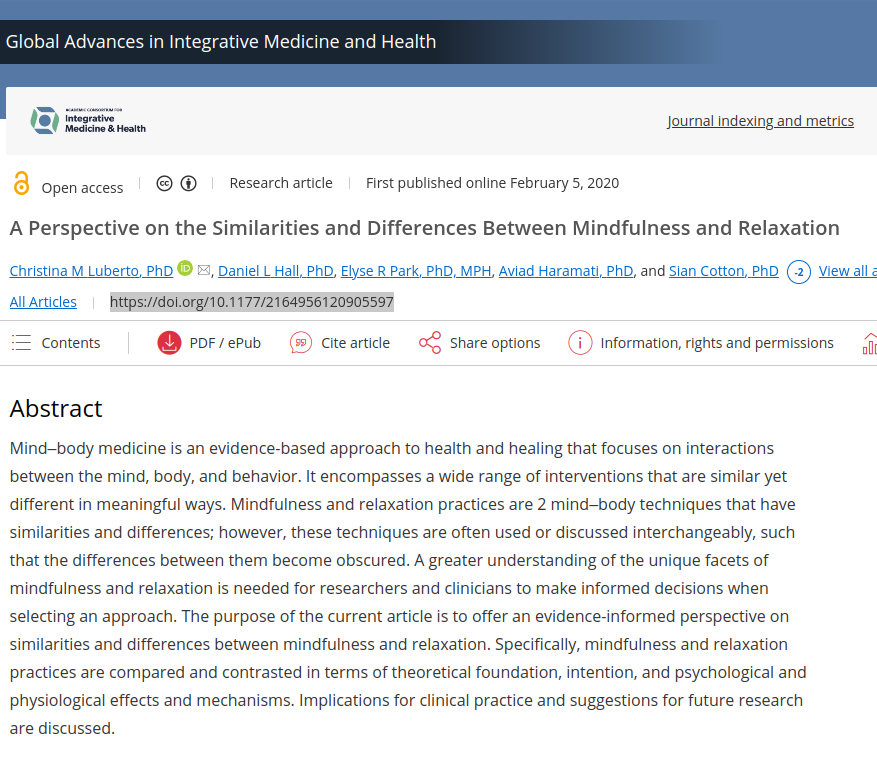Mind–body medicine is an evidence-based approach to health and healing that focuses on interactions between the mind, body, and behavior. It encompasses a wide range of interventions that are similar yet different in meaningful ways. Mindfulness and relaxation practices are 2 mind–body techniques that have similarities and differences; however, these techniques are often used or discussed interchangeably, such that the differences between them become obscured. A greater understanding of the unique facets of mindfulness and relaxation is needed for researchers and clinicians to make informed decisions when selecting an approach. The purpose of the current article is to offer an evidence-informed perspective on similarities and differences between mindfulness and relaxation. Specifically, mindfulness and relaxation practices are compared and contrasted in terms of theoretical foundation, intention, and psychological and physiological effects and mechanisms. Implications for clinical practice and suggestions for future research are discussed.
A Perspective on the Similarities and Differences Between Mindfulness and Relaxation
Publication
Global Advances in Integrative Medicine and Health
Abstract
Web and Email Links
Related Listings
Journal
Behavioral Medicine
To examine the extent to which advanced meditative practices might alter body metabolism and the electroencephalogram (EEG), we investigated three Tibetan Buddhist monks living in the Rumtek monastery in Sikkim, India. In a study carried out in February 1988, we found that during the practice of several different meditative practices, resting metabolism ([Vdot]O2) could be both raised (up to 61%) and lowered (down to 64%). The reduction from rest is the largest ever reported. On the […]
Journal
Fertility and Sterility
Objective: To replicate previously reported psychological improvements in infertile women attending a group behavioral treatment program. Design: Psychological and demographic data were collected before entering and again upon completion of a behavioral medicine program on a second cohort of patients. Setting: The program was offered in the Division of Behavioral Medicine, an outpatient clinic of the Department of Medicine at New England Deaconess Hospital. All patients were receivi […]
Journal
Annals of the New York Academy of Sciences
Stress is a well-known risk factor in the development of addiction and in addiction relapse vulnerability. A series of population-based and epidemiological studies have identified specific stressors and individual-level variables that are predictive of substance use and abuse. Preclinical research also shows that stress exposure enhances drug self-administration and reinstates drug seeking in drug-experienced animals. The deleterious effects of early life stress, child maltreatment, a […]

